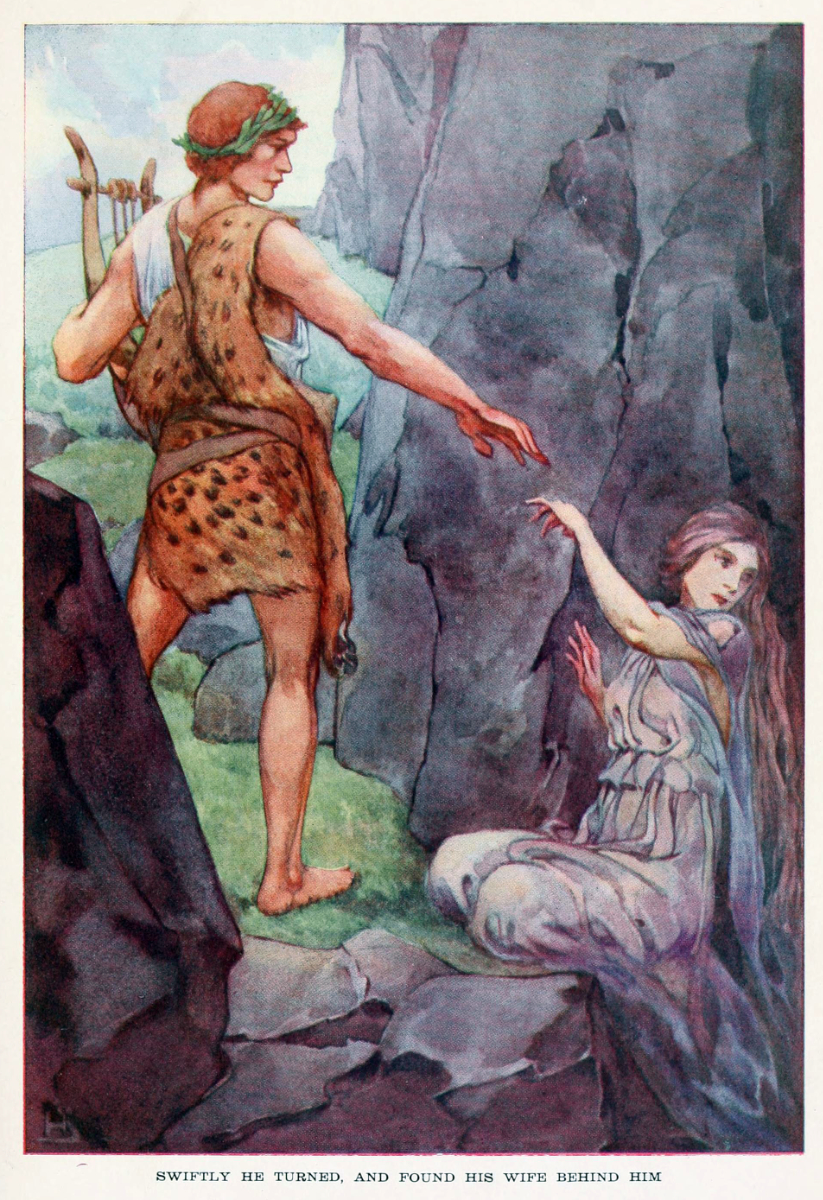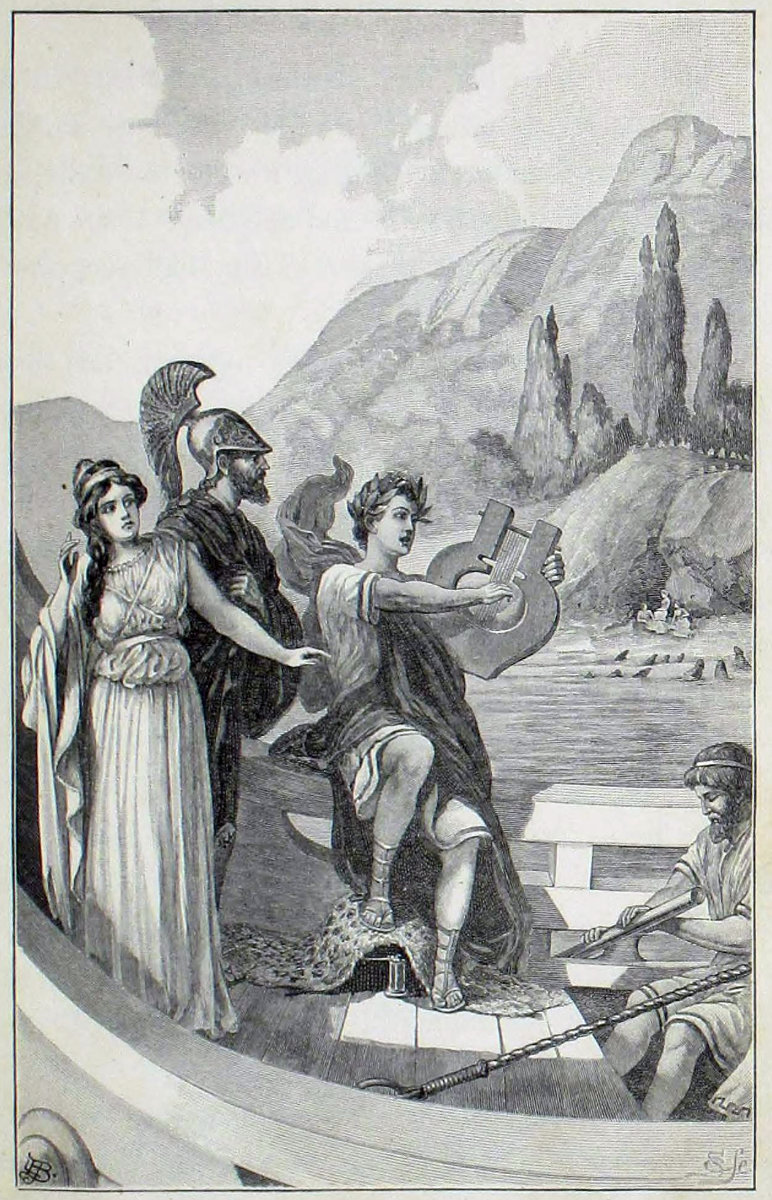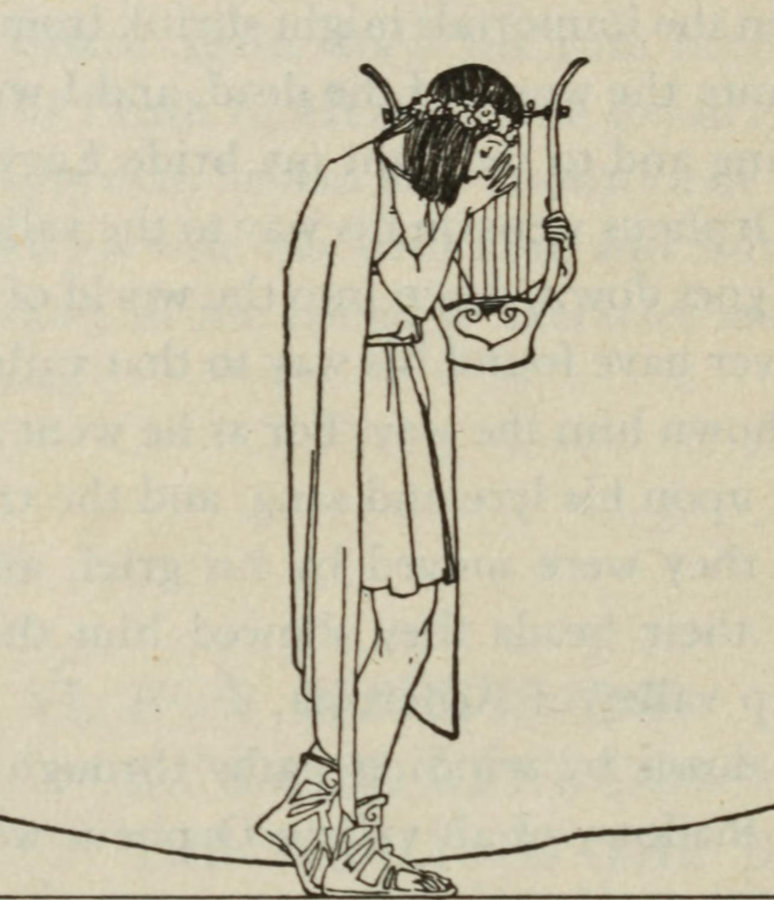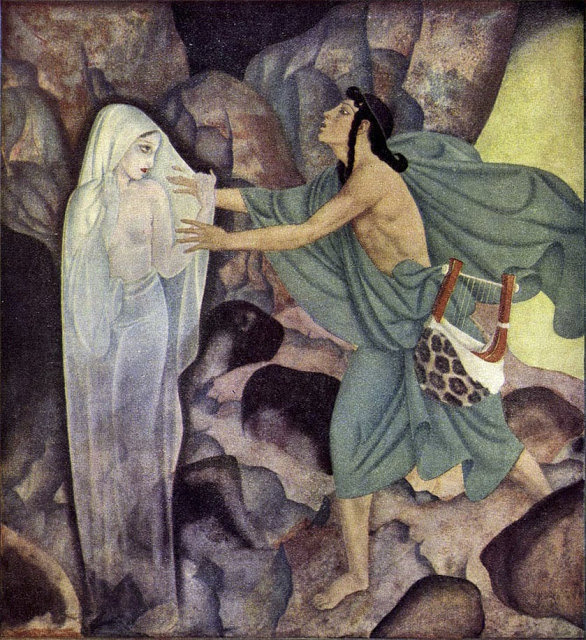In Greek mythology, Orpheus was a Thracian bard, legendary musician and prophet. He was also a renowned poet and, according to legend, travelled with Jason and the Argonauts in search of the Golden Fleece, and descended into the underworld to recover his lost wife, Eurydice. The major stories about him are centered on his ability to charm all living things and even stones with his music (the usual scene in Orpheus mosaics), his attempt to retrieve his wife Eurydice from the underworld, and his death at the hands of the maenads of Dionysus, who got tired of his mourning for his late wife Eurydice. As an archetype of the inspired singer, Orpheus is one of the most significant figures in the reception of classical mythology in Western culture, portrayed or alluded to in countless forms of art and popular culture including poetry, film, opera, music, and painting. For the Greeks, Orpheus was a founder and prophet of the so-called “Orphic” mysteries. The earliest literary reference to Orpheus is a two-word fragment of the 6th-century BC lyric poet Ibycus: onomaklyton Orphēn (‘Orpheus famous-of-name’). He is not mentioned by Homer or Hesiod.
| Alias Orpheus |
| Real Names/Alt Names Orpheus |
| Characteristics Musician, Argonauts, Myths & Legends, Bronze Age |
| Creators/Key Contributors Ovid |
| First Appearance Greek mythology |
| First Publisher ○ |
| Appearance List Literature: The Argonautica by Apollonius Rhodius (3rd century BCE), referred to by Virgil, Euripides, Plato, Strabo, Plutarch, Ovid’s Metamorphoses (8 CE), Aeschylus, Claudio Monteverdi’s L’Orfeo (1607), Luigi Rossi’s Orfeo (1647), Franz Liszt’s symphonic poem Orpheus (1854), Igor Stravinsky’s ballet Orpheus (1948), Jean Cocteau’s Orpheus (1950), etc. |
| Sample Read A Book of Myths (1915) by Jeanie Lang [Internet Archive] |
| Description In Greek mythology, Orpheus was a Thracian bard, legendary musician and prophet. He was also a renowned poet and, according to legend, travelled with Jason and the Argonauts in search of the Golden Fleece, and descended into the underworld to recover his lost wife, Eurydice. The major stories about him are centered on his ability to charm all living things and even stones with his music (the usual scene in Orpheus mosaics), his attempt to retrieve his wife Eurydice from the underworld, and his death at the hands of the maenads of Dionysus, who got tired of his mourning for his late wife Eurydice. As an archetype of the inspired singer, Orpheus is one of the most significant figures in the reception of classical mythology in Western culture, portrayed or alluded to in countless forms of art and popular culture including poetry, film, opera, music, and painting. For the Greeks, Orpheus was a founder and prophet of the so-called “Orphic” mysteries. The earliest literary reference to Orpheus is a two-word fragment of the 6th-century BC lyric poet Ibycus: onomaklyton Orphēn (‘Orpheus famous-of-name’). He is not mentioned by Homer or Hesiod. |
| Source Orpheus – Wikipedia |







